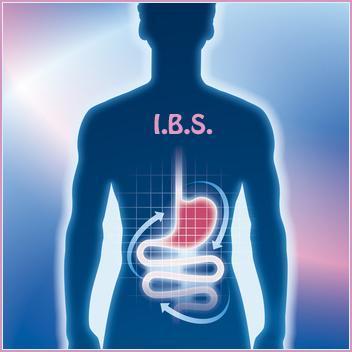IBS Research Findings
IBS Research Findings

If you are a science geek like me, you can’t get enough of the information that IBS research provides. Although the magical cure has yet to be discovered, information is constantly being uncovered regarding the causes of IBS, effectiveness of treatment, and the overlap of IBS with other health conditions. The following articles provide you with an overview of some of the latest IBS research findings.
Five Reasons Why IBS Is Not All in Your Head
“It’s all in your head” is the oft-quoted diagnosis by those ignorant of even the most basic of IBS research. Certainly the lack of physical findings on standard diagnostic testing adds to the frustration and insecurity regarding a diagnosis of IBS. This insecurity can be offset by knowing that research is pointing to identifiable physical changes in IBS. Here are the main areas of inquiry:
Motility Dysfunction in IBS
Visceral Hypersensitivity and IBS
The Brain Gut Connection in IBS
Inflammation and IBS
Gut Bacteria and IBS
Further Research on the Causes of IBS
Beyond the physical changes that may be related to IBS symptoms, research has branched into other areas looking for information as to what causes IBS. The diversity of these areas of inquiry reflect the complicated nature of IBS itself. Whether it be looking at what effect stress has on digestive functioning, looking as specific symptoms, or identifying a subset of IBS, you can find assurance that researchers are working hard to find some helpful answers.
The Stress Response and IBS
IBS in Men
IBS in Women
Bloating and Distension in IBS
Post Infectious IBS
Treatment of IBS
It seems like daily a new research study is published looking at the effectiveness of various treatments on reducing symptoms of IBS. Each new study brings an improved awareness of treatment options that are safe and effective.
The first article listed below provides a summary of research-driven treatment recommendations, while the others provide an in-depth look at specific forms of treatment.
IBS Management Guidelines 2014
Medication for Constipation Predominant IBS
Medication for Diarrhea Predominant IBS
Cognitive Behavioral Therapy for IBS
Hypnotherapy for IBS
Acupuncture for IBS
Does a Low FODMAP Diet Help IBS?
Look-Alike Disorders
In the search for a fuller understanding of IBS, researchers have looked to uncover health problems that may look and feel like IBS, but have a different identifiable cause. The following articles provide you with an overview of some of the more common health conditions that may be behind your IBS.
Small Intestine Bacteria Overgrowth (SIBO)
Food Allergies and IBS
Fructose Intolerance and IBS
IBS and Sugar Intolerance
IBS and IBD – How do we tell them apart?
IBS and Other Symptoms and Disorders
IBS patients often find themselves dealing with a variety of non-IBS symptoms and other health problems at the same time.
These other symptoms and other illnesses seem to happen to IBS patients at a higher rate than what is seen in the general population. In the quest for further understanding of IBS, researchers have been delving into the questions as to why this might be.
IBS with Other Unrelated Symptoms
IBS and Other Health Problems
Bile Acid Malabsorption and IBS-D
Bladder Problems and IBS
Depression and IBS
Diabetes and IBS
Diverticulosis and IBS
Dysautonomia and IBS
Fibromyalgia and IBS
Gallbladder Problems and IBS
Generalized Anxiety Disorder and IBS
Gluten Sensitivity and IBS
GERD and IBS
Panic Disorder and IBS
Restless Leg Syndrome and IBS
Thyroid Disease and IBS
Daily Life
Quality of life can be tremendously impacted by IBS symptoms. In the past, this impact has been overlooked and minimized by traditional medicine. Things have changed. Researchers have begun to look at the impact of IBS on daily activities, as well as the impact of daily activities on IBS. Here is a sampling of some of this research:
Does Exercise Really Help IBS?
Yoga for IBS
IBS and Children
One of the most challenging parts of parenthood is to see your child in physical distress. Luckily, research has been ongoing in understanding the phenomena of frequent belly-aches in children, formally known as functional abdominal pain (FAP). Information regarding what might cause FAP, as well as how it is best treated, is welcomed by parents looking for a way to ease their children’s suffering.
Acute Abdominal Pain and Constipation in Children
Cognitive Behavioral Therapy for Abdominal Pain in Children
Hypnotherapy for Abdominal Pain in Children
by Barbara Bolen For Very Well
Be the first to post a message!